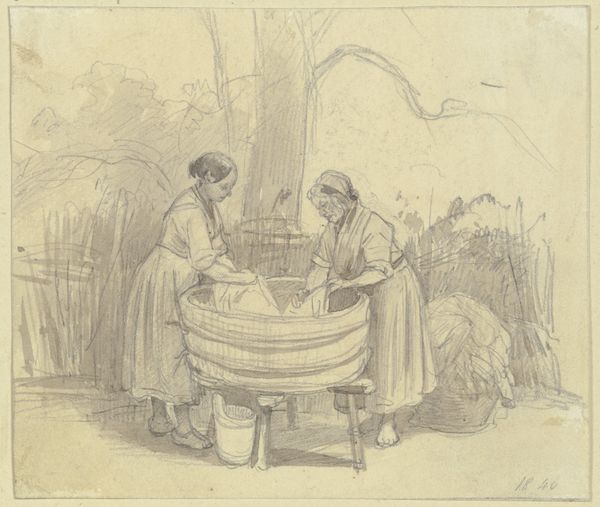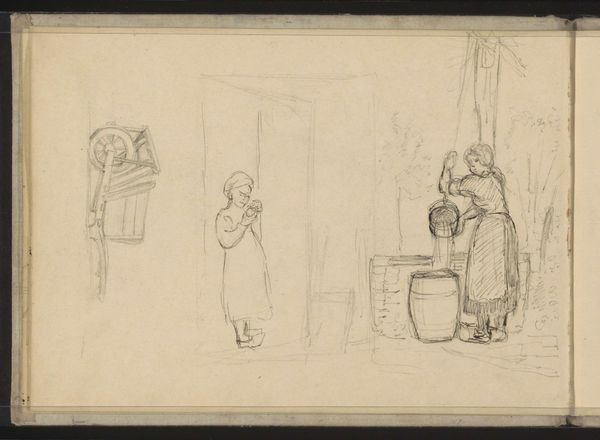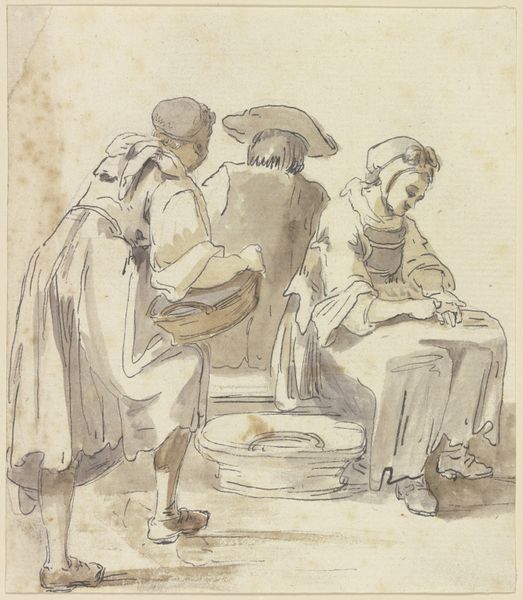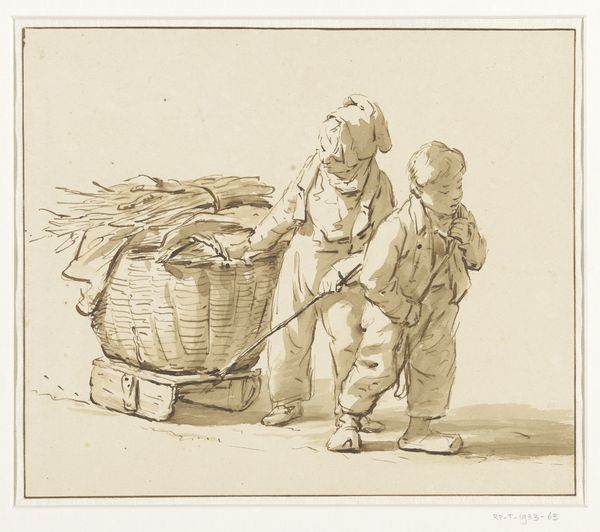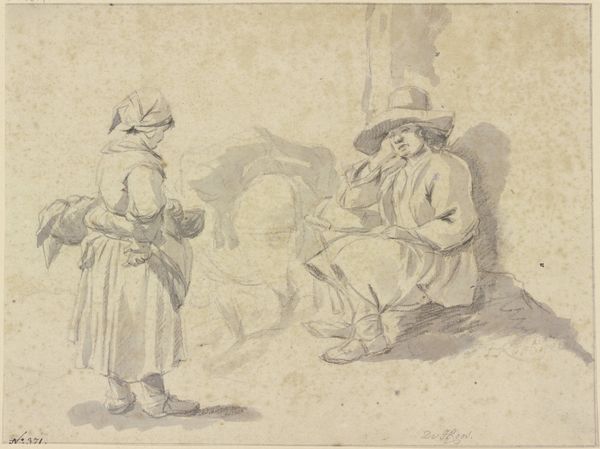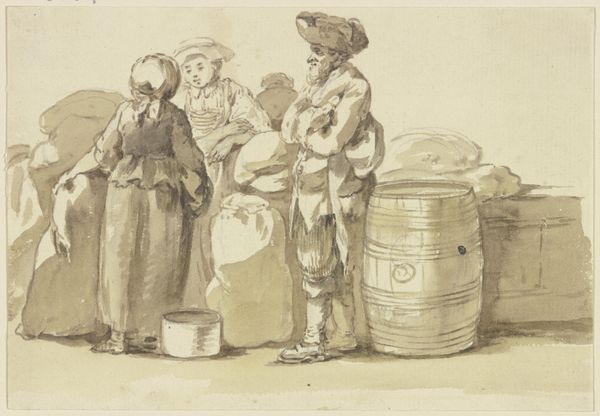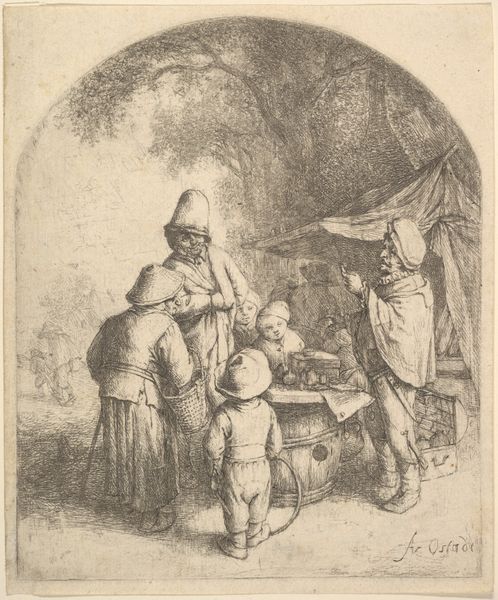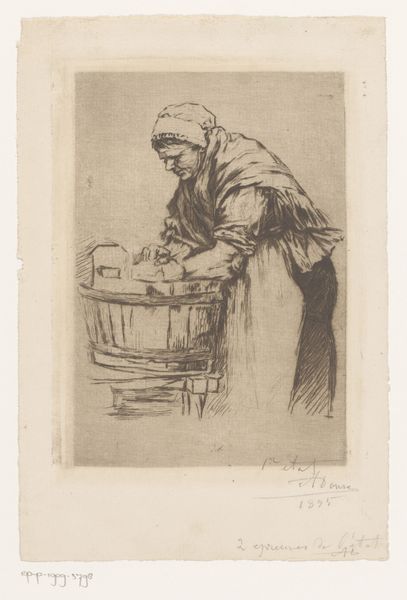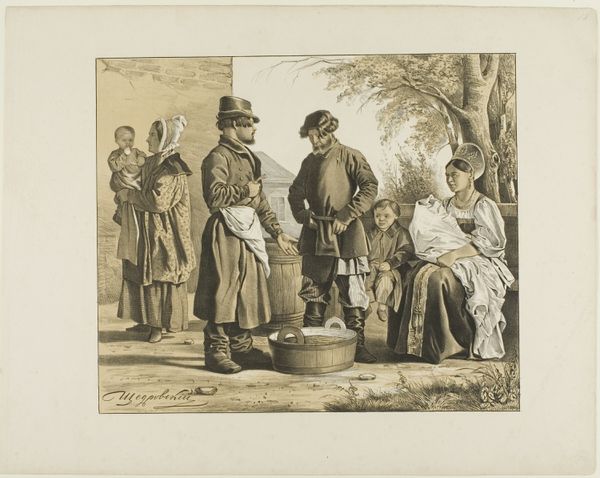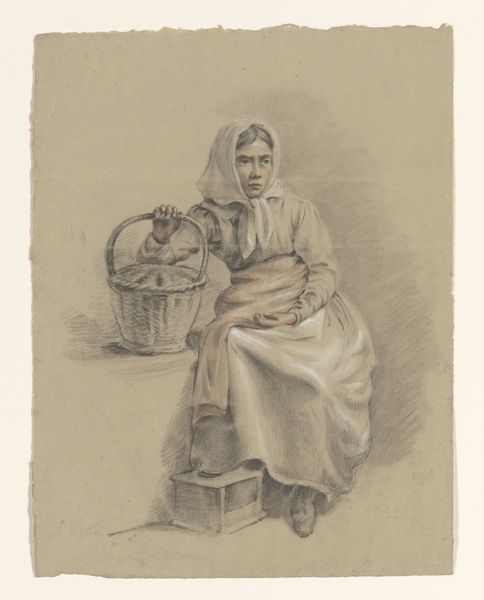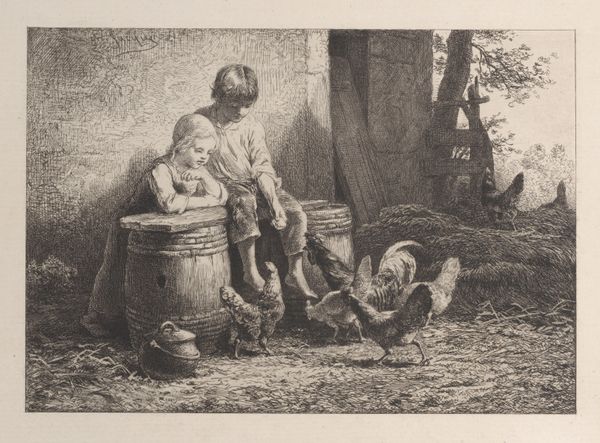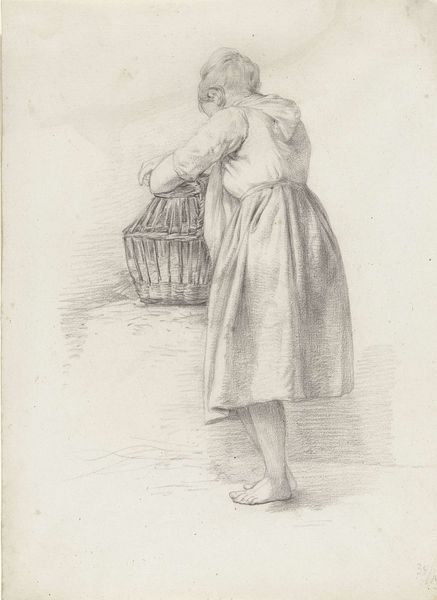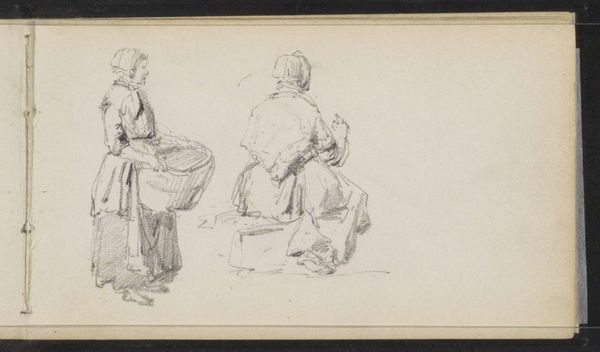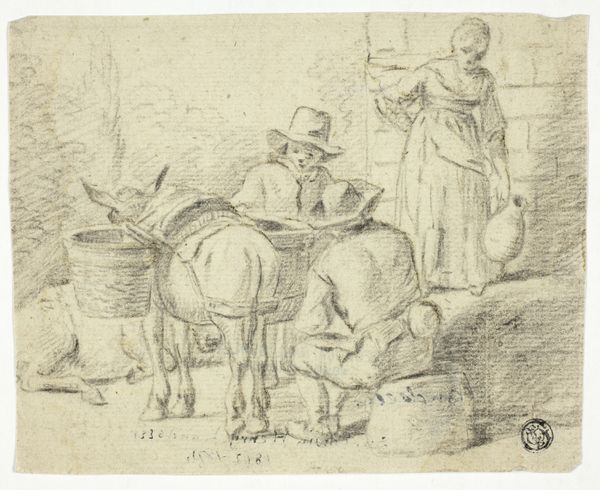
Zwei Wäscherinnen unter einem Baum an der Waschbütte, die eine von hinten, die andere von vorne 1846
0:00
0:00
drawing, ink, pencil
#
drawing
#
16_19th-century
#
pencil sketch
#
landscape
#
ink
#
romanticism
#
pencil
#
genre-painting
#
realism
Copyright: Public Domain
Jakob Fürchtegott Dielmann made this pencil drawing of two washerwomen at their tub, without indicating when it was made. The drawing, now held at the Städel Museum, portrays a scene of daily labor in what we can presume is rural Germany. Dielmann here depicts the social structure of 19th-century labor, with women performing the back-breaking work of laundering. The image also subtly comments on class distinctions; we can assume these women don't have the luxury of domestic servants and must do this labor themselves. Dielmann may well be critiquing the romanticized portrayals of peasant life common in much art of the time. Historians interpret art by researching the economic realities and class structures of the societies that produce it. Through such methods, we can move beyond the surface and understand the deeper social meanings embedded in seemingly simple images.
Comments
No comments
Be the first to comment and join the conversation on the ultimate creative platform.
